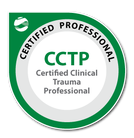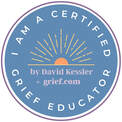|
“If you realized how powerful your thoughts are, you would never think a negative thought.” Peace Pilgrim
A foundational concept in cognitive behavioral therapy is that our thoughts, behaviors and feelings are all interrelated and influence each other. It is often diagrammed in a triangle with each point influencing both of the other two points. They discuss how often our thoughts are cognitive distortions and those inaccurate thoughts influence our emotions and responses to situations. As I work with clients I talk about how this triangle creates results in our life. It is interesting to really pay attention to the thoughts that are running through our heads. Often if we take the time to become aware of them we realize that many are very negative and deeply entrenched distortions of reality. As I talk with clients I discuss this interrelation as a spiral. They have certain thoughts about themselves that lead to certain emotions in a situation, those emotions lead to certain behaviors which gives them certain results. Those results then influence their thoughts again. It can be an upward or downward spiral. For example when my child screams for a toy in Wal-Mart, certain thoughts start running through my head. They may sound like, why is he doing this to me…everyone is staring at us…why won’t he just stop…he always does this…I can’t take him anywhere…I can’t deal with him anymore… These thoughts lead to emotions like embarrassment or anger which leads to the behavior of me yelling in Wal-Mart or giving in to get the child quiet. This response creates a result and leads to more thoughts about how it was handled. It is a perpetuating cycle that leads to patterns of behavior. In dealing with addiction I talk with the clients about how change is completely changing the entire cycle in order to create not only different behaviors and results, but also different thoughts and emotions about ourselves. I point out that our willpower is great at changing behaviors and getting different results for the short term, but just changing those two parts without changing the thoughts about who we are creates a small spiral that gets tightly wound like a spring and then eventually the willpower hits a moment of weakness and we relapse right into the previous behaviors. Willpower is great at making temporary change- like staying on a diet for a few weeks or abstaining from drug or alcohol use, but once it hits its breaking point or we reach an established goal, if our thoughts about ourselves haven’t changed we go right back into old behaviors and most times sink even deeper than we were before we used our willpower. To truly get into recovery is to truly change the entire cycle. To be able to have kind, compassion thoughts about ourselves when we are triggered to use or put the weight back on or when our kid acts out in Wal-Mart. We can only interrupt the cycle when we are aware of the pattern. So take some time and listen with fresh ears to the voice that plays. Is what you hear true and is there a kinder, more compassionate way to talk to ourselves in this situation?
0 Comments
“It is as if a king had sent you to a country to carry out one special, specific task. You go to the country and you perform a hundred other tasks, but if you have not performed the task you were sent for, it is as if you have done nothing at all. So people have come into the world for particular tasks, and that is our purpose. If we don't perform it, we will have done nothing.” Rumi
What is my purpose? It sounds like a simple question, but it is arguably the biggest question facing everyone on our planet. How many of us have taken time to contemplate what the answer is? I once heard someone say there are only three questions we need to ask in life. The first is ‘what do I want?’ The second is ‘how much does it cost?’ and the third is ‘am I willing to pay the price?’ Then the speaker said the sad fact is most of us have never taken the time to ask the first question. If we don't ask what we want in life how do we discover our purpose? As I work with clients I have found that it is difficult for most of them to even think about what they truly want in life. Many of them talk about living day to day just trying to survive. This is a difficult way to go about life. Always in struggle, always at the mercy of what life throws at them. When I ask some of them what they feel their purpose is in life, what they would love to do, many of them have no idea. To open ourselves up to that question is big. Some of my clients don’t even know where to start. They describe lives that sound very much like the one they are currently living with some modest upgrades. To encourage them to begin thinking about what they would love to do, I ask them to play in the land of imagination. I tell them that they go to the land of imagination frequently, but many of them have been coming in the back door. They have been focusing on all the things that can go wrong and all the catastrophes they imagine themselves in. I ask them to use that same imagination, but to think about what they would love to do. Once they start talking about that, there is a definite shift in their energy. They begin to smile and look lighter, until that doubt devil comes in and tells them that it will never happen. I remind them that if they can keep just a small part of their mind open to the truth that it could possibly happen they will begin to see themselves differently. They begin to see that unique spark that is within just waiting to be expressed in the world. Then the next question is, 'how much does it cost to live this life they are imagining?' Some people get hung up here. It takes a lot of courage to take the steps and make the changes they may need to make. It may cost them some friends or their job. This is where it becomes a leap of faith. When I left my teaching career to pursue a career in counseling, it cost me income and security. It did not make sense to my logical mind. There is a cost involved and we have to be willing to pay that price. The bigger question though is, what is the cost if I don’t make the changes? I knew that another path was calling me and the voice was getting louder. All of my circumstances were pointing me in the direction I needed to take. It was not easy to make that decision, but I can’t imagine where my life would be now if I hadn’t. When there is a purpose calling you it is not always easy to answer that call, but not listening often leads to regret. A pastor once talked about all the bedsides she sat by as people were preparing to make their transitions. She noted that none of them said they regretted the things they did, but many talked about the things they didn’t do. Today we have been given the gift of life and time, are you going to use it to follow your calling? “Conflict cannot survive without your participation.” Wayne Dyer
There seems to be an almost constant conflict within our heads. As I become more aware of what I’m noticing it is almost comical to listen to myself worry, doubt and replay my behaviors and reactions to the world around me. I used to think it was just me that had the critical voice and soundtrack of doubt constantly running through my head, but as I have discussed this with friends and clients it seems to be universal. Although I’m sure we all have slight variations, most of the common voices seem say ‘you’re not good (smart, thin, young, etc…) enough’ or ‘who do you think you are?’ I’ve often said that it would be both terrifying and comforting if we were able to invent a machine to broadcast our thoughts. Although I wouldn’t want people to hear how critical I am of myself, hearing that I’m not the only one would be comforting. When I have a decision to make there are at least two, but often many more voices that are arguing back and forth. One voice will make a point, but then another will counter with a different argument, often another voice will chime in and remind me of something else. It is exhausting to keep going over and over the same incident. The thing I should have said or done, but didn’t or the thing I shouldn’t have said or done but did. I sometimes feel as if I’ve run a marathon and in reality nothing has changed except the fact that I’m exhausted. At times it feels like a real conflict. I love Wayne Dyer’s quote because any conflict, even the conflict in our head can’t survive without our participation. So the big question is, ‘HOW DO I STOP PARTICIPATING!?!’ While those conflicting voices are part of our humanness and are always with us, here are five steps to turn down the volume:
“There are so many fragile things, after all. People break so easily, and so do dreams and hearts.” Neil Gaiman
This week I was meeting with a client who was discussing how there seems to be a constant conflict of voices within. There are some voices which seem to be positive and others which seem to cheer for behaviors that are not in alignment with what his goals are. The client was talking about abstaining, but noted that there is a strong voice that rises up and says, ‘just one last time’ or ‘no one needs to know’ or ‘it was a rough week, you deserve it!’ We discussed the differences between these two voices and then I asked him to name the one that wants him to abstain. He called it his true self. When I asked him to put a name to the voice of doubt and he called it his devil. I noted that devil is an accurate name for it because devil spelled backwards is LIVED! We discussed how these voices are calling him to live his life backwards. Wanting him to continue to use is not in alignment with who he truly is. I then discussed how his dream of living a life of sobriety and finding healthy ways to deal with pain instead of numbing is fragile at this point. It needs some protecting. I used an analogy of how the dream of him staying clean is like an eggshell. It is very fragile, as are all dreams in the beginning. When the voice of doubt comes up it easily breaks the shell. We discussed how the ‘devil’ within isn’t truly trying to crush our dreams, it is only trying to keep us in what is known and familiar. Although it is risky to continue to use, for this client it was more familiar and known then having to give up friends and the only form of social interaction he knew. The devil voices rationalize that it is better to stay in the known then to venture out into the unknown where there could be bigger dangers and risks. We then talked about how a fragile egg, with bubble wrap and a protective barrier around it can be dropped from a significant height and remain intact. I asked him what his bubble wrap could be to protect his dream of staying clean. We each have a dream. For some of us it is just a fleeting thought that we would like to open our own business, or write a book, or travel to India or any thought that charges us with excitement. We also have all the reasons why it isn’t the right time, we don’t have the education, we don’t have the money or we aren’t worthy of that dream. If you have a dream, what is your bubble wrap to protect that dream? The first line of defense is to protect the dream from your own devil. Remind yourself that if you were given a dream by your authentic self, your authentic self will be able to lead you towards it. You are more than your devil. Are you ready to turn your DEVIL around and live the life that is meant to be LIVED through you? |
Archives
April 2020
Categories
All
|
 RSS Feed
RSS Feed




